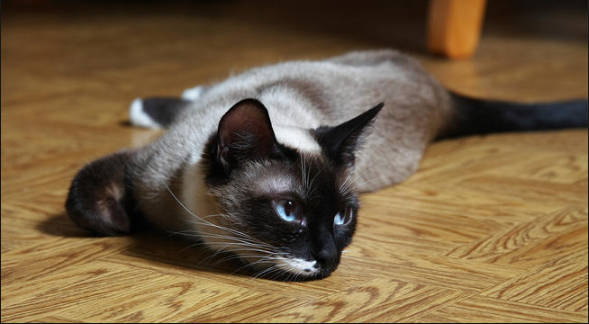
Hypoallergenic Cats For Adoption: A Guide to Finding Your Purrfect Match
Are you an allergy sufferer who dreams of sharing your life with a feline companion? While traditional cats can trigger allergy symptoms in some individuals, there are certain breeds that are considered hypoallergenic, meaning they produce fewer allergens that can cause reactions. This article will provide a comprehensive guide to hypoallergenic cats for adoption, helping you find the purrfect match for your home.
Understanding Hypoallergenic Cats
Contrary to popular belief, no cat breed is 100% hypoallergenic. However, some breeds have been identified as producing significantly lower levels of allergens, making them a more suitable choice for allergy sufferers. These allergens, known as Fel d 1 and Fel d 4, are found in a cat’s saliva, urine, and dander. Hypoallergenic cats typically have less Fel d 1 in their saliva, which is the main allergen responsible for allergic reactions.
Breeds of Hypoallergenic Cats
Several cat breeds have been recognized for their hypoallergenic qualities. These breeds include:
-
Siberian Cat: This beautiful, long-haired breed originates from Russia and is known for its distinctive fur pattern. Siberian cats have a thick, luxurious coat that does not shed as much as other breeds, reducing the amount of dander released into the air.
-
Balinese Cat: Closely resembling the Siamese cat in appearance, the Balinese is a long-haired breed with a silky, hypoallergenic coat. They are affectionate and playful, making them a great choice for families with children.
-
Devon Rex Cat: Known for their pixie-like appearance with large ears and prominent eyes, Devon Rex cats are friendly and easygoing. They have a short, curly coat that sheds very little, minimizing the release of allergens.
-
Sphynx Cat: While not truly hypoallergenic, the hairless Sphynx cat produces low levels of allergens due to the absence of fur. They require special care to protect their skin, but they are known for their loving and affectionate nature.
-
Russian Blue Cat: This elegant breed has a dense, short coat with a soft, velvety texture. Russian Blue cats are known for their intelligence and hypoallergenic qualities.
Identifying Hypoallergenic Cats
While these breeds are generally considered hypoallergenic, it’s important to note that individual cats within a breed may vary in their allergen levels. To identify a truly hypoallergenic cat, it’s recommended to:
-
Visit shelters or breeders: Spend time with different cats to observe their behavior and assess if they trigger any allergic reactions.
-
Ask for allergen reports: Some breeders may have allergen reports available for their cats, which can provide an indication of their allergen levels.
-
Consider adoption: Adopting a cat that has already shown to be hypoallergenic in a foster home is a reliable way to minimize the risk of allergic reactions.
Care and Management
Even with hypoallergenic cats, it’s important to implement proper care and management practices to further reduce allergen exposure:
-
Regular grooming: Brush your cat regularly to remove loose hair, dander, and allergens from the coat.
-
HEPA air filters: Use HEPA air filters in your home to capture allergens and improve air quality.
-
Vacuuming and dusting: Vacuum and dust your home frequently to remove allergens from surfaces.
-
Washing bedding: Wash your cat’s bedding and blankets regularly in hot water to eliminate allergens.
-
Limit access to certain areas: If possible, limit your cat’s access to areas where you spend the most time, such as your bedroom.
Benefits of Hypoallergenic Cats
Owning a hypoallergenic cat can bring numerous benefits to allergy sufferers:
-
Improved quality of life: A hypoallergenic cat can allow allergy sufferers to enjoy the companionship of a feline friend without experiencing severe allergic reactions.
-
Reduced stress: The presence of a pet can provide comfort and reduce stress levels.
-
Educational opportunities: Hypoallergenic cats can be a valuable tool for teaching children about pets and allergies.
FAQs
Q: Are there any truly hypoallergenic cat breeds?
A: No, there is no cat breed that is 100% hypoallergenic. However, certain breeds produce significantly lower levels of allergens, making them more suitable for allergy sufferers.
Q: How can I find a hypoallergenic cat for adoption?
A: Visit shelters or breeders that specialize in hypoallergenic breeds or ask for allergen reports. Consider adopting a cat that has already shown to be hypoallergenic in a foster home.
Q: What are the best care practices for hypoallergenic cats?
A: Regular grooming, HEPA air filters, vacuuming and dusting, and frequent washing of bedding are recommended to minimize allergen exposure.
Q: Can I become allergic to a hypoallergenic cat?
A: While less likely, it is possible to develop allergies over time. If you experience any allergic reactions, even with a hypoallergenic cat, it’s important to consult with a healthcare professional.
Q: What other pet options are available for allergy sufferers?
A: Other pet options for allergy sufferers include hypoallergenic dogs, rabbits, guinea pigs, or fish.






